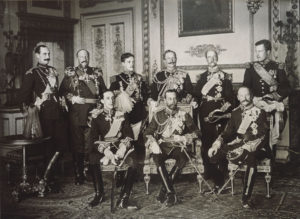Charles Hoskinson recently gave a keynote address at Plutusfest, an event that he stated is “near and dear to his heart”.
For those who are unaware, Hoskinson is a co-founder of Ethereum and founder/CEO of IOHK (Input Output Hong Kong), and founder of Cardano, currently the 11th largest cryptocurrency by market capitalization. IOHK hosted the inaugural Plutusfest at the University of Edinburgh. The topic of the address was “Money and Markets”.
Yap Island
Yap Island “Stone Money”
He began the address by referencing the island of Yap, a Polynesian island that used social traditions to decide “who owns giant stone wheels”, which was deemed to be their currency.
The founder of IOHK continued to elaborate on the fact that since the stone rings were often lost on dangerous expeditions, the society still “cognitively agreed” that it existed, and could be used to purchase or barter.
Hoskinson pointed out the similarity to blockchain, stating: “Money is much the same way. It doesn’t actually require physical representation, it doesn’t require you to hold it, to be there. You just have to come to some sort of social consensus that what you’re dealing with actually exists, and is worth your time, and you should be willing to accept it for products and services.”
He went on: “You don’t have to back things by gold. You don’t actually have to hold it. You just have to agree it’s there. That’s the nature of money, it’s always going to be social.”
The System Is Changing
Hoskinson also referenced a picture taken in 1910 where nine monarchs were documented in one photo, “in their full regalia, with their sashes and their medals”. He pointed out that in that picture alone, those individuals controlled half of the world’s armies and money. The photograph was taken at the funeral of King Edward VII.
He then stated that just ten years later (thanks to World War I), the majority of them had either been deposed or depowered. He related this to the fact that governments can dominate markets and money, and that it wasn’t just the war that led to this loss of power. He pointed to factors such as the French Revolution, the American Revolution, and Marxist theories as “symptoms and signs” that there were faults in the system that would prove irreversible.
Hoskinson continued to compare those times to the 2008 global economic crisis, and Brexit, as indications that the “world is becoming different”.
The keynote address also touched on how much the Internet has affected the spread of information, how the modern ease of travel helps that information disseminate, and more.






























